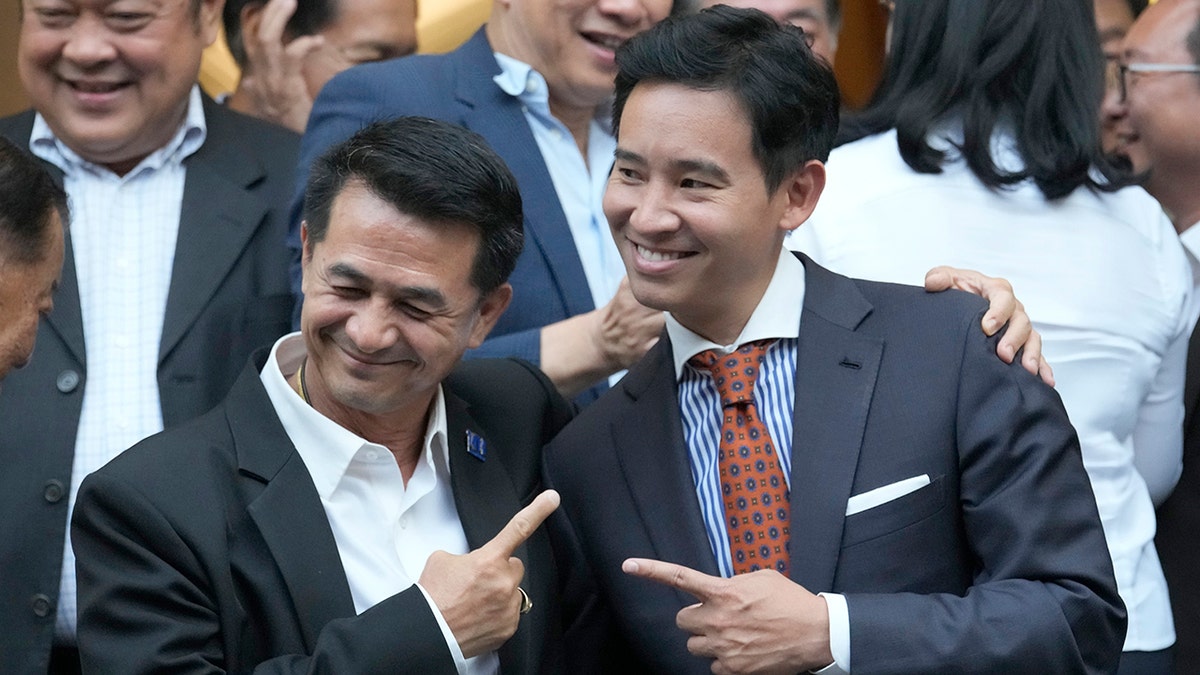Nearly two months after a surprising election victory by the progressive Move Forward Party, Thailand's new Parliament convened on Monday. However, the path to power for the party's leader, Pita Limjaroenrat, remains unclear, with significant obstacles hindering the end of nine years of military-influenced rule.
Forming a government requires a majority vote from both the elected House of Representatives and the military-appointed Senate, a body representing the traditional conservative establishment. Move Forward's win has triggered alarm within this establishment, which views the party's platform as a challenge to the existing power structure, including the monarchy. Several senators have already voiced their opposition to Pita Limjaroenrat, the 42-year-old Harvard-educated businessman leading the party.
Despite securing 312 seats in the 500-seat lower house through an eight-party coalition, Move Forward still requires substantial support from the 250 senators to achieve a governing majority. The election results clearly demonstrate public fatigue with the military-controlled government led by Prime Minister Prayuth Chan-ocha, who initially seized power in a 2014 coup and later returned as prime minister after the 2019 general election. Move Forward’s appeal stems from its progressive agenda, resonating with a populace yearning for change.
The party's pledges to reform influential institutions, including the military and the monarchy – both wielding considerable power under the current constitution drafted during Prayuth's tenure – have fueled the concerns of conservative royalists. Adding to the complexity of the situation are the emerging tensions between Move Forward and its largest coalition partner, the Pheu Thai party.
Pheu Thai, along with its predecessors, maintained an unbroken streak of national election victories from 2001 until the recent May election. The party's history is intertwined with former Prime Minister Thaksin Shinawatra, ousted in a 2006 coup, and his family. Royalist factions have long held animosity toward Thaksin, a billionaire populist currently living in exile. Prayuth's 2014 coup also removed a government led by Thaksin’s sister, Yingluck Shinawatra.

A point of contention between Move Forward and Pheu Thai has been the House speaker position, typically chosen by Parliament. This role holds significant influence over the parliamentary agenda and, consequently, the potential for political reform. Following discussions, a compromise was reached: Wan Muhamad Noor Matha of the Prachachat Party was nominated for the speakership, with Move Forward and Pheu Thai each securing a deputy speaker position. Pita emphasized that this decision aimed to solidify the coalition's unity in supporting his prime ministerial bid.
However, some analysts suggest that the underlying distrust between the two parties poses the most significant threat to Pita's aspirations. The historical dominance of Pheu Thai in Thai politics creates an internal pressure to avoid appearing subservient to Move Forward. This dynamic could weaken the perceived unity of the pro-democracy coalition, providing justification for senators and their conservative allies to oppose Pita's candidacy.
Beyond these internal challenges, Pita and Move Forward face potential legal hurdles, a familiar tactic employed against parties challenging the establishment. Pita is currently under scrutiny for allegedly violating a constitutional clause regarding media ownership, a charge he disputes, asserting the shares in question are part of his late father's estate. The possibility of a political ban or even imprisonment for what many consider a technicality raises concerns about a resurgence of political instability, a recurring theme in Thailand since 2006.
Comments(0)
Top Comments